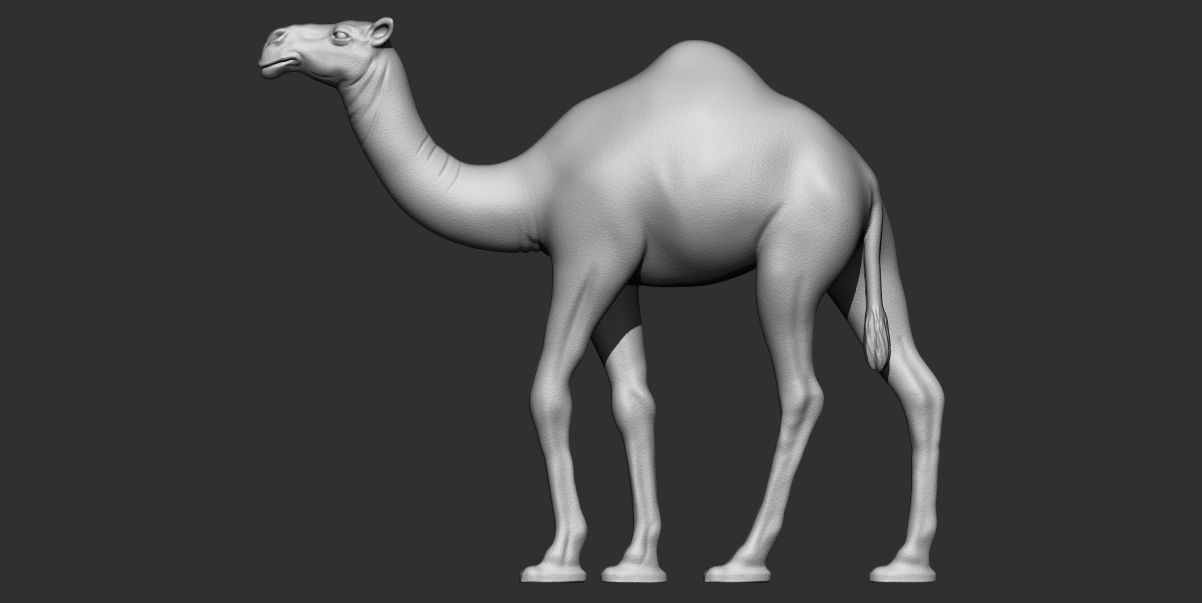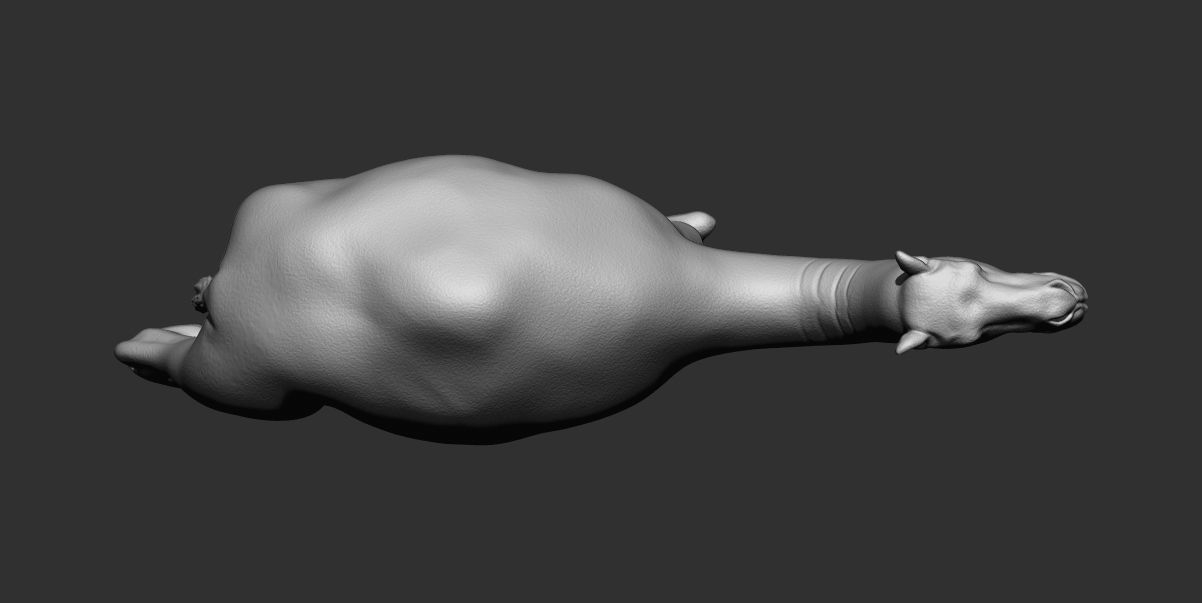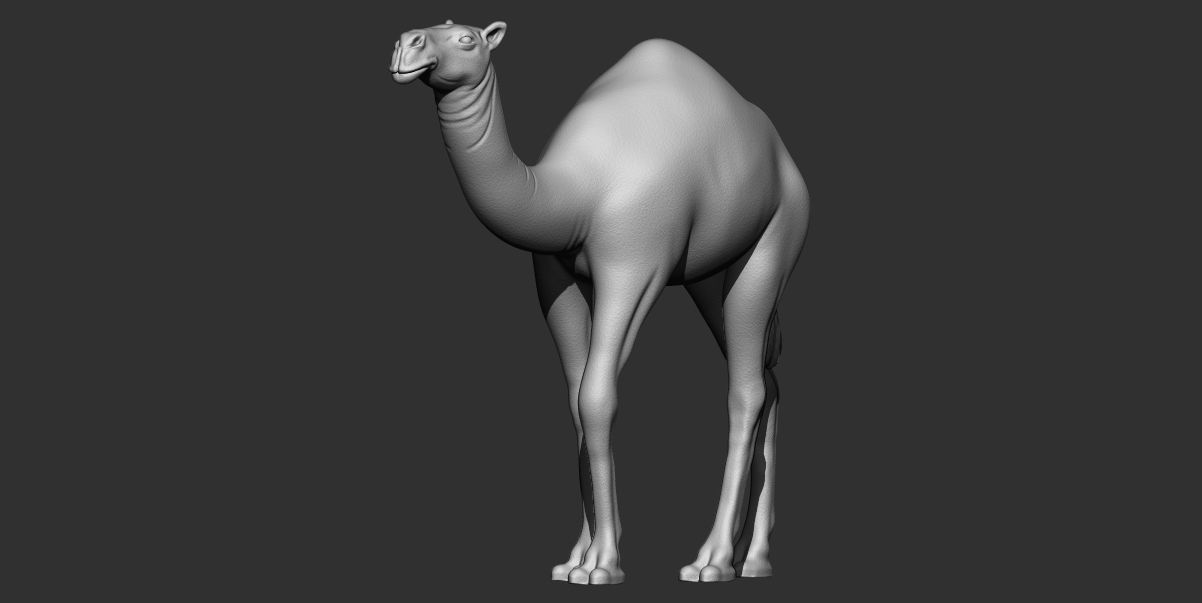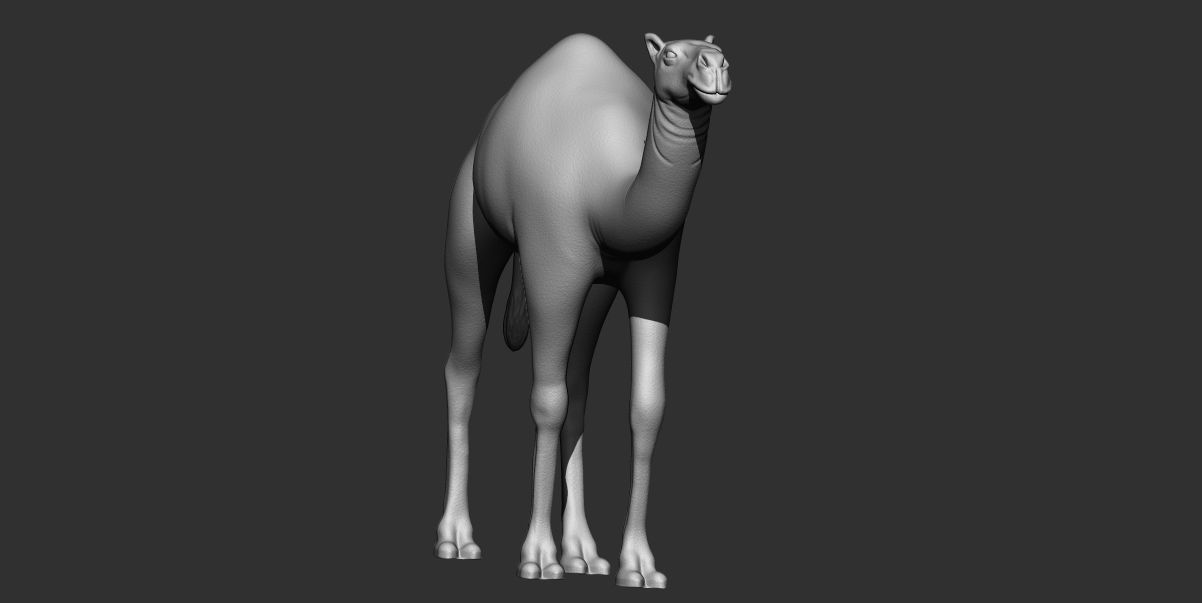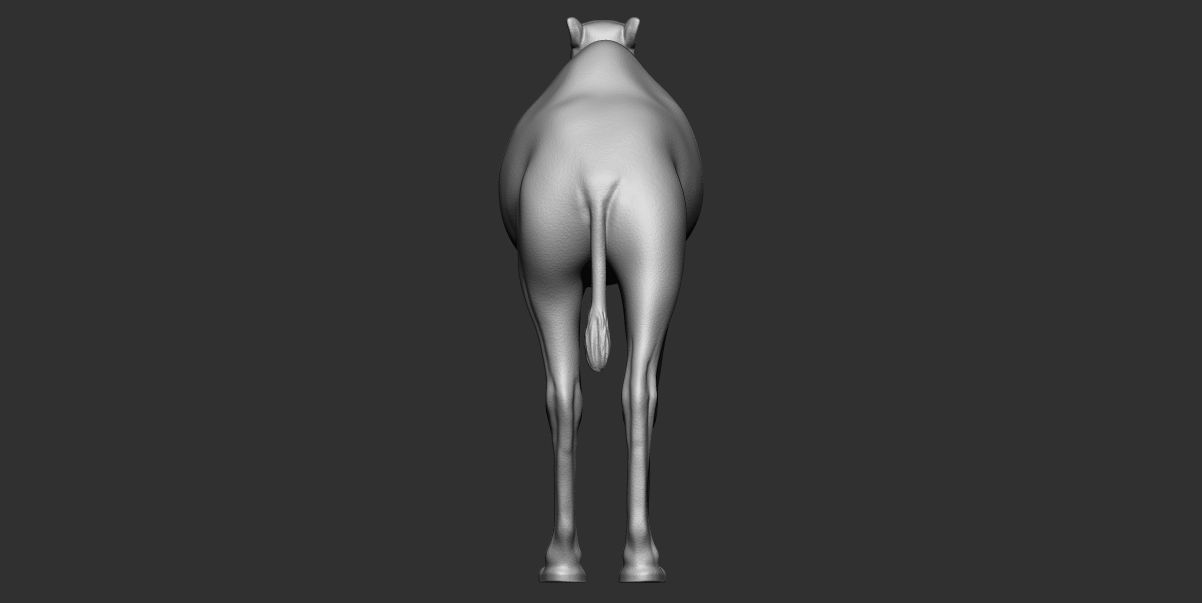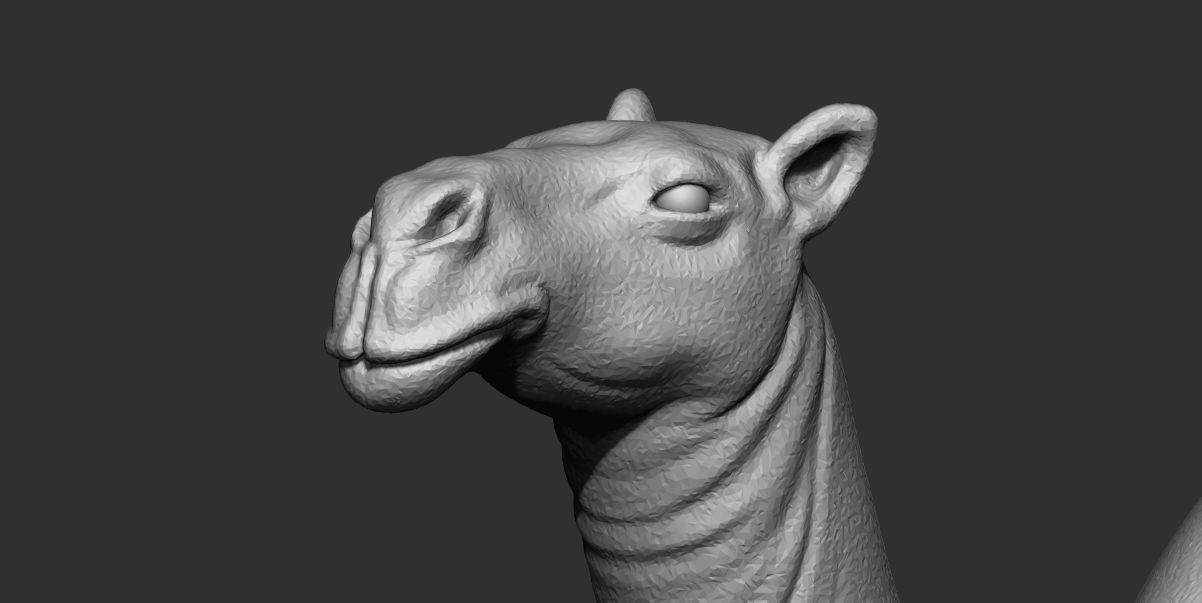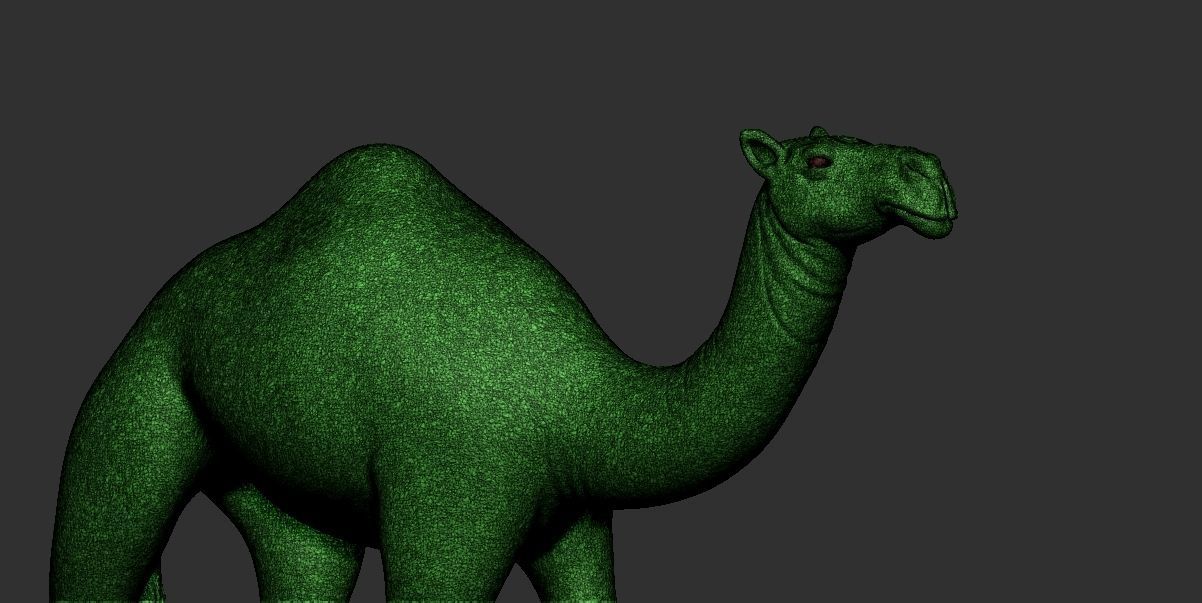
Camel 3d printable model 3D print model
Camel 3d printable model
Camels, scientifically known as Camelus, are a type of even-toed ungulate that possess distinct fatty deposits called humps on their backs. They have been domesticated for a long time and serve as valuable livestock, providing milk, meat, fiber, and felt. Due to their adaptability to desert environments, camels are highly suitable as working animals and play a crucial role in transportation of both passengers and cargo. Currently, there are three surviving species of camels. The dromedary, with a single hump, constitutes 94% of the global camel population, while the Bactrian camel, with two humps, makes up the remaining 6%. The wild Bactrian camel, which is a separate species, is currently facing critical endangerment.
In a broader context, the term camel is informally used to refer to all seven species of the Camelidae family, including the true camels (the aforementioned three species) as well as the New World camelids such as llamas, alpacas, guanacos, and vicuñas. These New World camelids belong to the separate tribe Lamini. The origin of camelids can be traced back to North America during the Eocene period, with the ancestor of modern camels, Paracamelus, migrating to Asia via the Bering land bridge approximately 6 million years ago.

